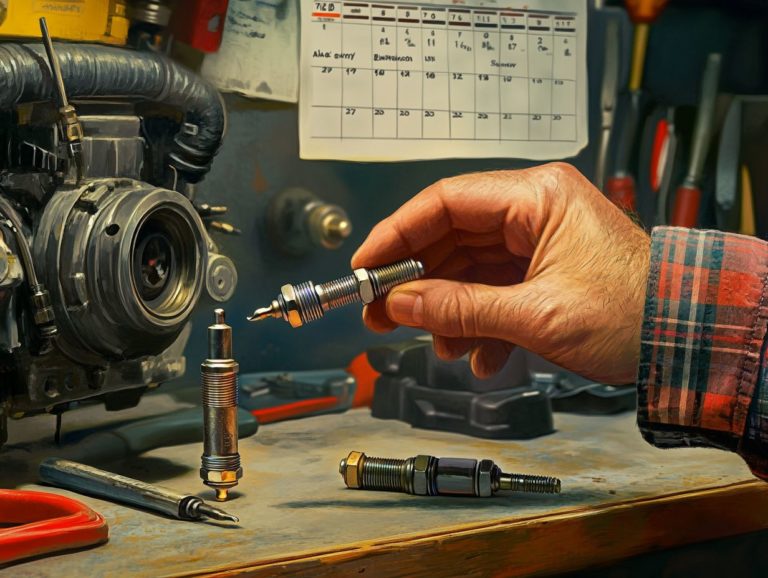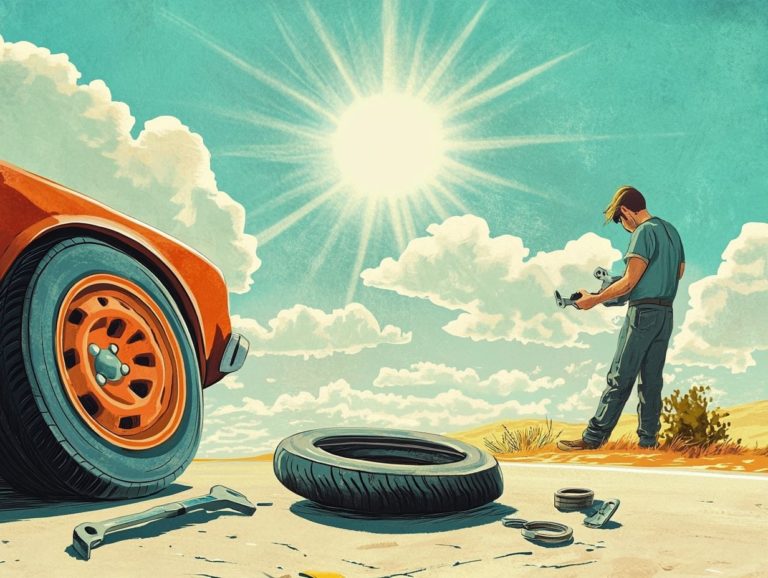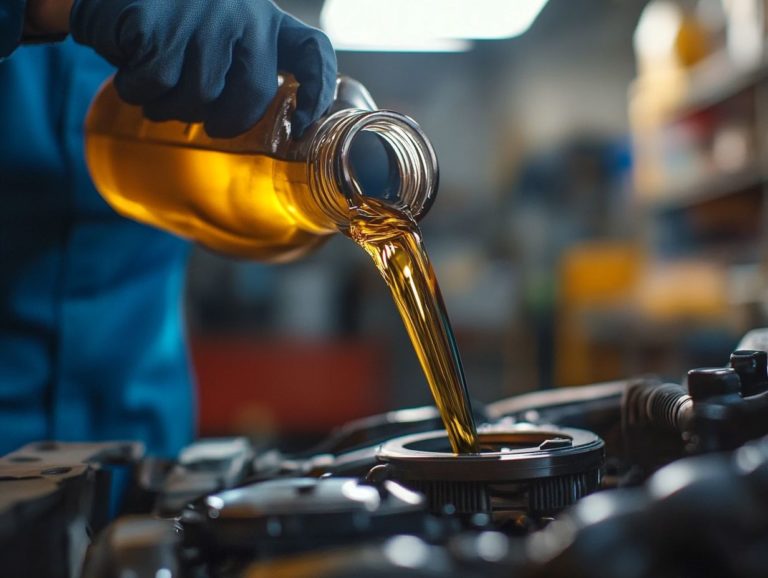What Every Driver Should Know About Maintenance
Your vehicle’s maintenance is not just convenient; it s important for your safety and your car’s health. Regular maintenance helps prevent costly repairs and ensures a smoother driving experience.
Let s tackle vital tasks together, so you can keep your car running smoothly!
Contents
- Key Takeaways:
- The Importance of Regular Maintenance for Drivers
- Common Maintenance Tasks for Drivers
- Signs Your Vehicle Needs Maintenance
- DIY vs Professional Maintenance
- Tips for Staying on Top of Maintenance
- Frequently Asked Questions
- What Every Driver Should Know About Maintenance?
- Why is maintenance important for drivers?
- What are some common maintenance tasks that drivers should be aware of?
- How often should a driver have their vehicle serviced?
- What are the consequences of neglecting maintenance?
- Can a driver perform maintenance tasks themselves?
Key Takeaways:
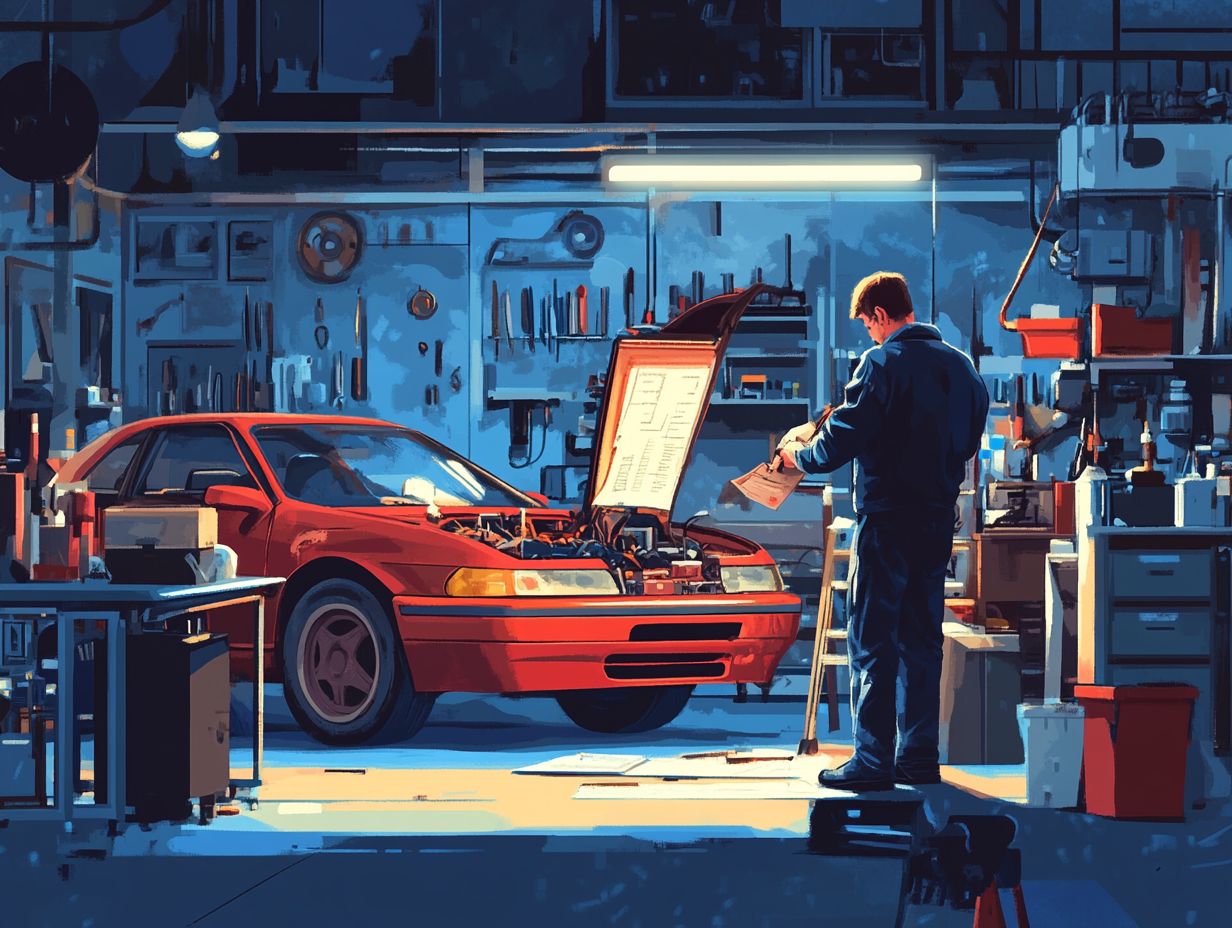
- Regular maintenance is crucial for extending the lifespan of your vehicle.
- Common maintenance tasks include oil changes, tire rotations, replacements, and brake inspections.
- Be aware of warning signs that your vehicle needs maintenance and know when to do it yourself or seek professional help.
The Importance of Regular Maintenance for Drivers
Regular maintenance is essential for achieving optimal vehicle performance, longevity, and safety while driving. This requires sticking to a structured car maintenance schedule and familiarizing yourself with the key components detailed in your owner’s manual.
This guide will help you with vital tasks such as oil changes, tire inspections, and windshield wiper replacements. By prioritizing car maintenance, you can greatly reduce the chances of unexpected breakdowns and costly repairs, ensuring that your vehicle operates smoothly for many years ahead.
Why Maintenance is Essential for Vehicle Longevity
Regular maintenance is crucial for enhancing your vehicle’s longevity and overall performance, as it allows you to address potential issues before they escalate into costly repairs.
By sticking to a consistent car maintenance schedule, you can significantly improve the health of your vehicle. Routine check-ups like oil changes, tire rotations, and brake inspections help catch minor problems early, preventing unexpected breakdowns that could leave you stranded.
Regular servicing not only optimizes engine performance and fuel efficiency but also ensures that each journey is safer and more economical. Ultimately, prioritizing a structured maintenance plan enables you to enjoy a smoother ride while prolonging the life of key components, leading to fewer headaches and lower long-term costs.
Common Maintenance Tasks for Drivers
You should be mindful of several essential maintenance tasks that are crucial for keeping your vehicle operating at best performance, all while significantly enhancing your safety on the road.
Oil Changes
Oil changes stand as one of the most critical pillars of car maintenance, directly influencing your engine’s performance and longevity.
Ensuring your engine is lubricated with high-quality oil is essential for reducing friction and heat, ultimately extending the life of various engine components. This proactive measure not only enhances fuel efficiency but also serves as a safeguard against costly repairs in the future.
The frequency of oil changes can vary considerably depending on your vehicle; for instance, many modern cars suggest an interval of 5,000 to 7,500 miles, while older models may demand more frequent servicing. It s prudent to consult the manufacturer s guidelines and consider factors such as driving conditions and oil type, as synthetic oils a type of oil that lasts longer and protects your engine better can often allow for extended intervals.
Regularly check your oil levels and conditions for valuable insights into potential issues before they escalate.
Tire Rotations and Replacements
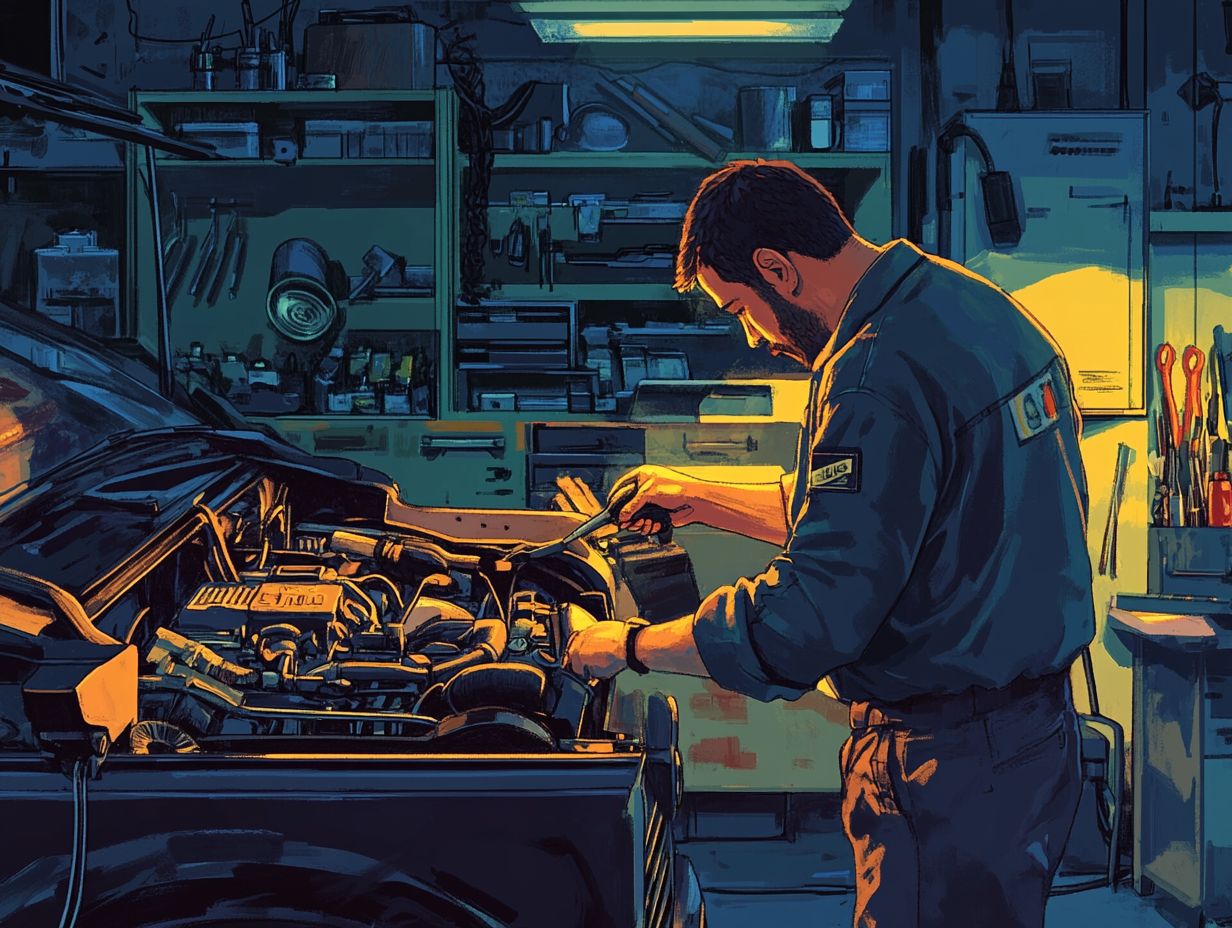
Maintaining proper tire pressure and performing regular tire rotations and replacements is essential for ensuring optimal vehicle handling and safety.
Check your tire pressure at least once a month and before embarking on any long trips. Using a reliable gauge helps confirm that your tires are inflated to the manufacturer’s recommended levels. This not only enhances fuel efficiency but also extends the life of your tires.
Rotate your tires every 6,000 to 8,000 miles to even out wear and improve handling and longevity. You can easily assess tread depth with a simple penny test: insert a penny into the tread with Lincoln’s head facing down. If the top of Lincoln’s head is visible, it s time to invest in new tires.
By following a consistent maintenance schedule, you boost safety and gain peace of mind for every journey ahead.
Brake Inspections and Replacements
Regular brake checks and timely replacements are crucial for your vehicle’s safety. They directly influence your stopping power and overall driving performance.
Regular evaluations allow you to catch potential issues before they escalate. During an inspection, a technician typically checks the brake pads for excessive wear, examines the rotors for grooves or warping, and tests fluid levels.
Watch for these signs that indicate brake replacement might be necessary:
- Squeaking or grinding noises
- Vibrations while braking
- Warning lights on the dashboard
By making it a habit to have your brakes checked, you enhance safety and prolong the life of your vehicle. Simple maintenance tips, like keeping your brake fluid topped off and ensuring proper tire pressure, can further support optimal brake performance.
Signs Your Vehicle Needs Maintenance
Recognizing the signs that your vehicle needs maintenance is essential for preventing costly repairs and ensuring optimal performance. Stay attuned to these indicators to keep your vehicle in top shape!
Identifying Warning Signs
Identifying warning signs in your vehicle helps tackle issues before they escalate into serious problems, ultimately preserving its performance.
Pay attention to any unfamiliar sounds that may hint at underlying mechanical issues. For example, if you hear a grinding noise from the brakes, it could signal wear that requires immediate maintenance.
Don t overlook dashboard indicators, like the check engine light; these often point to significant concerns that could compromise both safety and efficiency.
Any noticeable changes in driving behavior, such as pulling to one side or experiencing delays in acceleration, should prompt you to consider a vehicle check-up. Regular inspections and timely interventions can significantly mitigate these risks and enhance your vehicle’s overall reliability.
DIY vs Professional Maintenance
Choosing between DIY maintenance and enlisting professional assistance can profoundly influence your vehicle’s health, performance, and longevity.
When to Do it Yourself and When to Seek Professional Help
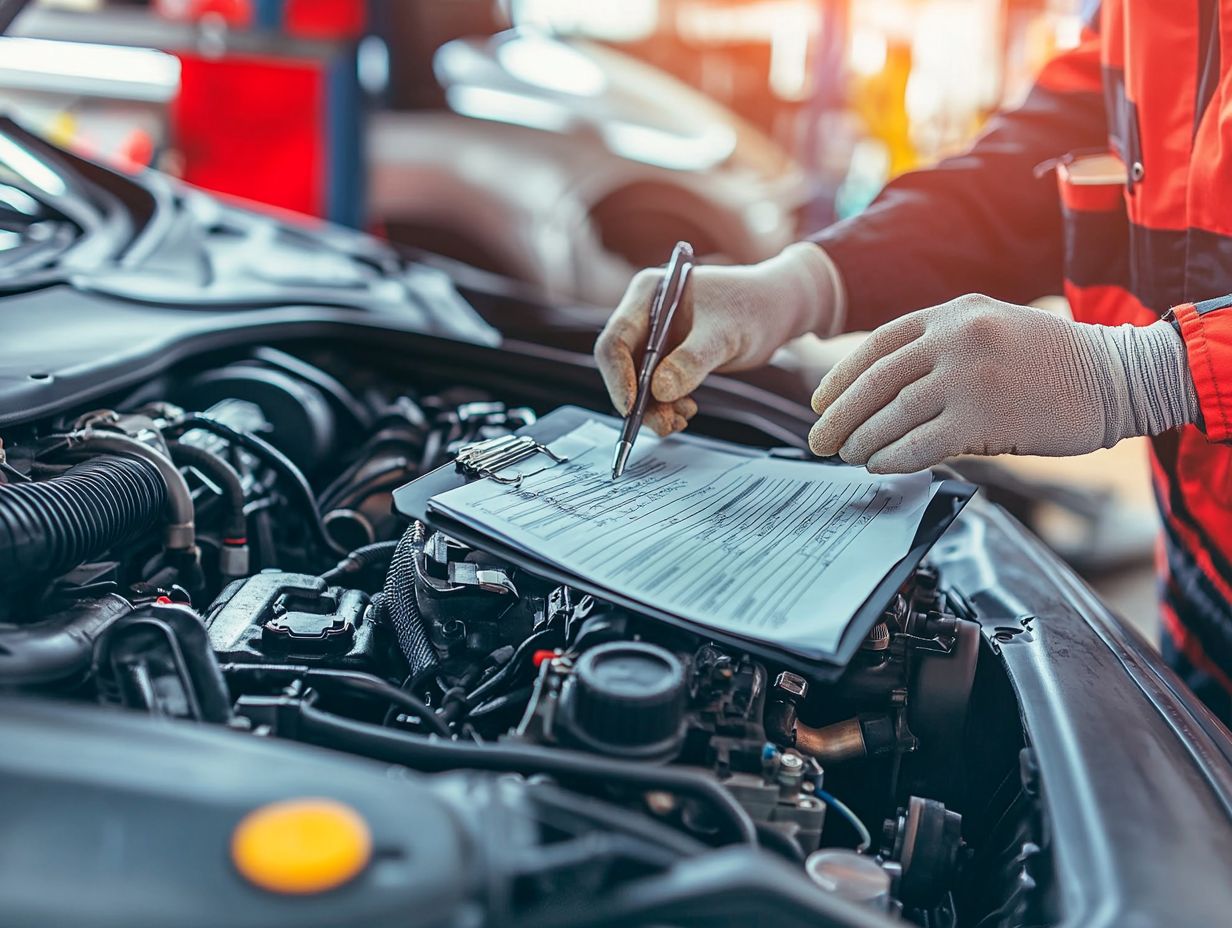
Recognizing when to handle maintenance tasks yourself and when to enlist trained mechanics can save you both time and ensure your vehicle receives the proper care it deserves.
For instance, basic tasks like checking tire pressure, replacing windshield wiper blades, and changing air filters are well within your reach with just a bit of guidance. Keeping a close eye on oil levels can also play a significant role in extending the life of your engine.
However, when it comes to complex issues like fixing the part that helps your car change gears or electrical system diagnostics you ll want to turn to trained mechanics from service departments. Acknowledging the limits of your DIY skills is crucial; while maintenance tips can empower you as a vehicle owner, some tasks are better left to professionals to guarantee safety and reliability.
Tips for Staying on Top of Maintenance
Staying on top of your vehicle’s maintenance schedule is crucial for maintaining its health and preventing unexpected breakdowns. By prioritizing routine check-ups and service, you not only enhance your driving experience but also safeguard your investment for the long haul.
Maintenance Schedule and Checklist
Creating a maintenance schedule and checklist is your proactive strategy for keeping your vehicle in peak condition throughout its lifespan.
By outlining essential tasks like oil changes, tire rotations, and brake inspections, you can significantly minimize the risk of unexpected breakdowns. Regular checks help you spot minor issues before they balloon into costly repairs.
Make it a habit to check fluid levels regularly it s a smart move! Incorporating routine tasks such as replacing air filters and inspecting belts and hoses can make a big difference. A checklist helps you keep track of these tasks, bringing a sense of reassurance.
By sticking to a well-structured maintenance schedule, you optimize fuel efficiency and enhance the overall safety and reliability of your vehicle.
Frequently Asked Questions
What Every Driver Should Know About Maintenance?
Every driver should know that regular maintenance is crucial for keeping their vehicle running smoothly and safely. It involves routine inspections and repairs, and understanding what you need to know about car maintenance insurance can also help ensure all systems stay in good working condition.
Why is maintenance important for drivers?
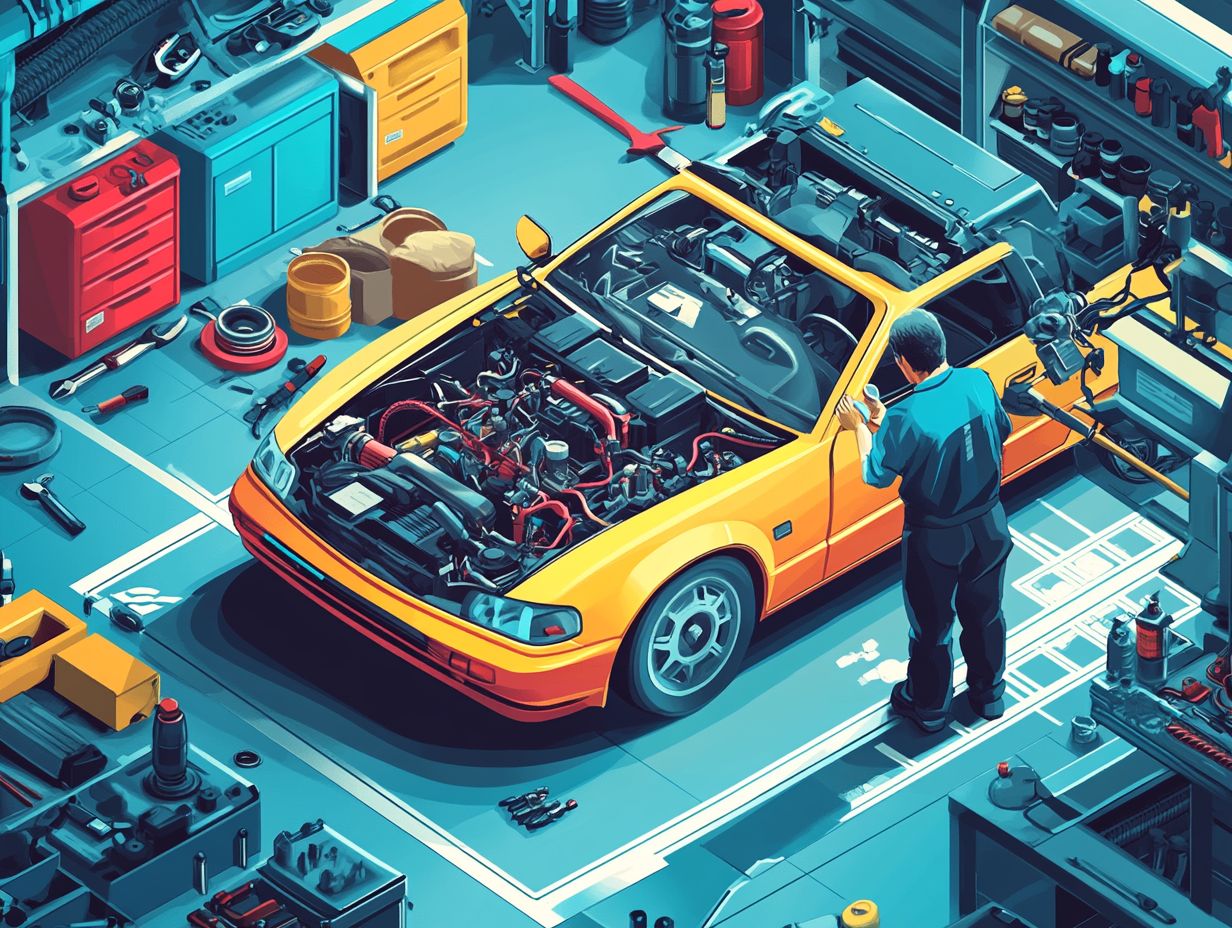
Maintenance is important for drivers because it ensures their safety on the road. Regular maintenance can catch potential issues before they become major problems, preventing breakdowns and accidents.
What are some common maintenance tasks that drivers should be aware of?
- Regular oil changes
- Tire rotations
- Brake inspections
- Checking fluid levels
These tasks help keep the engine, tires, brakes, and other important components in good condition.
How often should a driver have their vehicle serviced?
It is recommended to have your vehicle serviced every 5,000 to 7,500 miles or every 6 months, whichever comes first. However, this may vary depending on the make and model of your vehicle, so it’s important to follow the manufacturer’s recommended maintenance schedule.
What are the consequences of neglecting maintenance?
Neglecting maintenance can lead to serious issues and costly repairs down the road. It can also put the driver and others on the road at risk for accidents due to malfunctioning parts.
Can a driver perform maintenance tasks themselves?
While some basic maintenance tasks can be done by drivers, it’s always best to have a trained mechanic perform more complex tasks. This ensures that the maintenance is done correctly and can catch any potential issues that a driver may have missed.
Don’t wait! Check your vehicle now or schedule your next service!


